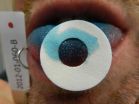(Press-News.org) An analysis of more than 600 class I (procedure/treatment should be performed/administered) American College of Cardiology/American Heart Association guideline recommendations published or revised since 1998 finds that about 80 percent were retained at the time of the next guideline revision, and that recommendations not supported by multiple randomized studies were more likely to be downgraded, reversed, or omitted, according to a study in the May 28 issue of JAMA.
As adherence to recommended clinical practice guidelines increasingly is used to measure performance, guidelines play a major role in policy efforts to improve the quality and cost-effectiveness of care. Past research has established the importance of revising guidelines over time to address advances in research and population-level changes in health risks. Nonetheless, unwarranted variability across guidelines can reduce trust in guideline processes and complicate efforts to promote consistent use of evidence-based practices. Moreover, policies based on recommendations that prematurely endorse practices subsequently found to be ineffective can lead to waste and potential harm. Little is known regarding the degree to which individual guideline recommendations endure or change over time, according to background information in the article.
Mark D. Neuman, M.D., M.Sc., of the Perelman School of Medicine at the University of Pennsylvania, Philadelphia, and colleagues analyzed variations in class I American College of Cardiology/American Heart Association (ACC/AHA) guidelines (n = 11) published between 1998 and 2007 and revised between 2006 and 2013. The researchers reviewed and recorded all class I recommendations from the first of the 2 most recent versions of each guideline and identified corresponding recommendations in the subsequent version. Recommendations replaced by less determinate or contrary recommendations were classified as having been downgraded or reversed; recommendations for which no corresponding item could be identified were classified as having been omitted.
Out of 619 index recommendations, 495 (80.0 percent) were retained in the subsequent version; 8.9 percent were downgraded, 0.3 percent were reversed, and 10.8 percent were omitted. The percentage of recommendations retained varied across guidelines from 15.4 percent to 94.1 percent.
Among recommendations with available information on level of evidence, 90.5 percent of recommendations supported by multiple randomized studies were retained, vs 81.0 percent of recommendations supported by 1 randomized trial or observational data and 73.7 percent of recommendations supported by opinion. After accounting for guideline-level factors, the odds of a downgrade, reversal, or omission were more than 3 times greater for recommendations based on a single trial, observational data, consensus opinion, or standard of care than for recommendations based on multiple randomized trials.
"… our results may have important implications for health policy and medical practice. The categorization of medical evidence, through guidelines, into stronger and weaker recommendations, influences definitions of good medical practice and informs efforts to measure the quality of care on a large scale. Our findings stress the need for frequent re-evaluation of practices and policies based on guideline recommendations, particularly in cases where such recommendations rely primarily on expert opinion or limited clinical evidence," the authors write.
"Moreover, our results suggest that the effectiveness of clinical practice guidelines as a mechanism for quality improvement may be aided by systematically identifying and reducing unwarranted variability in recommendations. Finally, our work emphasizes the importance of greater efforts on the part of guideline-producing organizations to communicate the reasons that specific recommendations are downgraded, reversed, or omitted over time."
(doi:10.1001/jama.2014.4949; Available pre-embargo to the media at http://media.jamanetwork.com)
Editor's Note: Please see the article for additional information, including other authors, author contributions and affiliations, financial disclosures, funding and support, etc.
Editorial: Updating Practice Guidelines
In an accompanying editorial, Paul G. Shekelle, M.D., Ph.D., of the VA West Los Angeles Medical Center, Los Angeles, and RAND Corporation, Santa Monica, discusses the importance of keeping clinical practice guideline recommendations up-to-date.
"The need for surveillance and updating of practice guidelines is increasingly gaining attention. To meet the need, guideline development organizations need to change their focus. This change is not easy. It is not just a matter of resources, although guideline organizations are going to have to devote more resources to active surveillance and maintenance of their guidelines than most probably do at present. It also has to be a change to the mindset, recognizing that keeping existing guidelines up-to-date in a timely way is an important goal for good patient care."
(doi:10.1001/jama.2014.4950; Available pre-embargo to the media at http://media.jamanetwork.com)
Editor's Note: Please see the article for additional information, including financial disclosures, funding and support, etc.
INFORMATION: END
Study examines variation in cardiology practice guidelines over time
2014-05-27
ELSE PRESS RELEASES FROM THIS DATE:
Penn study: Longest-lasting cardiology guidelines built on findings of randomized controlled trials
2014-05-27
PHILADELPHIA –Clinical practice guideline recommendations related to screening and treatment can change markedly over time as new evidence about best practices and clinical outcomes of various treatments emerges. In a first-of-its-kind study, Penn Medicine researchers examined high-level recommendations published by the American College of Cardiology (ACC) and the American Heart Association (AHA) between 1998 and 2007 and found that recommendations which were supported by multiple randomized controlled trials were the most "durable" and least likely to change over time. ...
Citizens help researchers to challenge scientific theory
2014-05-27
Science crowdsourcing was used to disprove a widely held theory that "supertasters" owe their special sensitivity to bitter tastes to an usually high density of taste buds on their tongue, according to a study published in the open-access journal Frontiers in Integrative Neuroscience.
Supertasters are people who can detect and are extremely sensitive to phenylthiocarbamide and propylthiouracil, two compounds related to the bitter molecules in certain foods such as broccoli and kale. Supertasting has been used to explain why some people don't like spicy foods or "hoppy" ...
Study identifies risk of chemotherapy related hospitalization for eary-stage breast cancer patients
2014-05-27
Oncologists now have a new understanding of the toxicity levels of specific chemotherapy regimens used for women with early stage breast cancer, according to research from The University of Texas MD Anderson Cancer Center.
The retrospective study, published in the Journal of Clinical Oncology, used large population-based data to compare the risk of hospitalization for six common chemotherapy regimens. Reasons for hospitalization included infection, fever, anemia, dehydration, neutropenia (low white blood cell count), thrombocytopenia (low blood platelets) and delirium. ...
Quantity, not quality: Risk of sudden cardiac death tied to protein overproduction
2014-05-27
A genetic variant linked to sudden cardiac death leads to protein overproduction in heart cells, Johns Hopkins scientists report. Unlike many known disease-linked variants, this one lies not in a gene but in so-called noncoding DNA, a growing focus of disease research. The discovery, reported in the June 5 issue of The American Journal of Human Genetics, also adds to scientific understanding of the causes of sudden cardiac death and of possible ways to prevent it, the researchers say.
"Traditionally, geneticists have studied gene variants that cause disease by producing ...
FDA approves many drugs that predictably increase heart and stroke risk
2014-05-27
The agency charged to protect patients from dangerous drug side effects needs to be far more vigilant when it comes to medications that affect blood pressure.
Robert P. Blankfield, MD, MS, a clinical professor of family medicine, issues this call to the U.S. Food and Drug Administration (FDA) in an editorial published recently in an online edition of the Journal of Cardiovascular Pharmacology and Therapeutics; the print version of the article is expected to appear this autumn.
The editorial notes that several medications survived FDA scrutiny, only to be pulled from ...
JCI online ahead of print table of contents for May 27, 2014
2014-05-27
Disturbed blood flow induces epigenetic alterations to promote atherosclerosis
Arterial hardening, also known as atherosclerosis, is the result of plaque buildup in the walls of arteries and over time can lead to cardiovascular complications, including heart attack, stroke, and peripheral vascular disease. Atherosclerotic plaques typically develop in arterial regions with disrupted blood flow. While blood flow disturbances are known to alter endothelial gene expression and function, it is not clear how altered blood flow induces these changes in endothelial cells. In ...
Study finds climate change accelerates hybridization between native, invasive trout
2014-05-27
MISSOULA – A new article by researchers from the University of Montana, the U.S. Geological Survey and Montana Fish, Wildlife & Parks asserts that climate warming is increasing the hybridization of trout – interbreeding between native and non-native species – in the interior western United States.
Clint Muhlfeld, a research assistant professor in the UM Division of Biological Sciences' Flathead Lake Biological Station and research ecologist with the USGS Northern Rocky Mountain Science Center in Glacier National Park, is the lead author of the article, titled "Invasive ...
Spontaneous thoughts are perceived to reveal meaningful self-insight
2014-05-27
PITTSBURGH—Spontaneous thoughts, intuitions, dreams and quick impressions. We all have these seemingly random thoughts popping into our minds on a daily basis. The question is what do we make of these unplanned, spur-of-the-moment thoughts? Do we view them as coincidental wanderings of a restless mind, or as revealing meaningful insight into ourselves?
A research team from Carnegie Mellon University and Harvard Business School set out to determine how people perceive their own spontaneous thoughts and if those thoughts or intuitions have any influence over judgment. ...
A habitable environment on Martian volcano?
2014-05-27
PROVIDENCE, R.I. [Brown University] — The slopes of a giant Martian volcano, once covered in glacial ice, may have been home to one of the most recent habitable environments yet found on the Red Planet, according to new research led by Brown University geologists.
Nearly twice as tall as Mount Everest, Arsia Mons is the third tallest volcano on Mars and one of the largest mountains in the solar system. This new analysis of the landforms surrounding Arsia Mons shows that eruptions along the volcano's northwest flank happened at the same time that a glacier covered the ...
Learning early in life may help keep brain cells alive
2014-05-27
Using your brain – particularly during adolescence – may help brain cells survive and could impact how it functions after puberty.
According to a recently published study in Frontiers in Neuroscience, Rutgers University behavioral neuroscientist Tracey Shors, who co-authored the study, found that the newborn brain cells in young rats that were successful at learning survived while the same brain cells in animals that didn't master the task died quickly.
"In those that didn't learn, three weeks after the new brain cells were made, one-half of them were no longer there," ...




